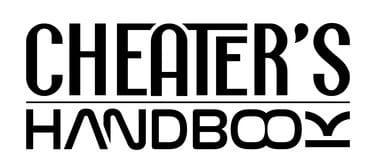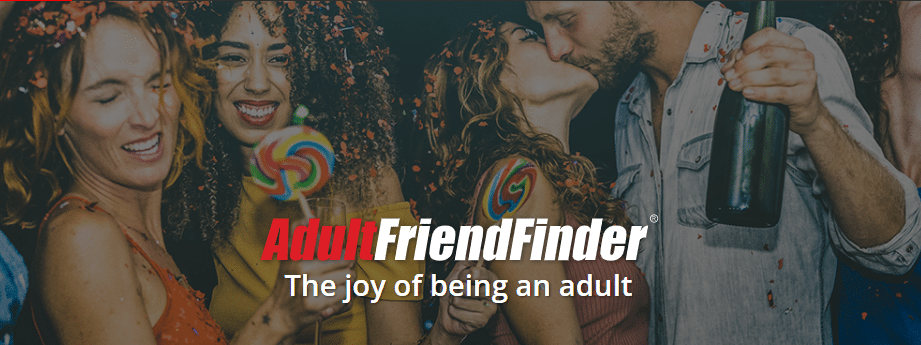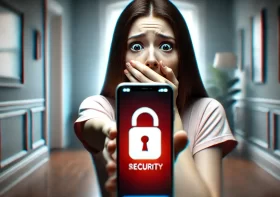Handling Rejection in Hookups

Navigating the world of hookups can indeed be an exhilarating experience, yet it often comes with the reality of rejection. Understanding the underlying reasons—such as compatibility issues and differing expectations—can help clarify this experience.
This article delves into why rejection occurs in casual encounters, offers insights on coping strategies when faced with it, and presents effective methods for moving forward.
Whether I aim to strengthen my resilience or simply gain a deeper understanding of these dynamics, there is valuable information to be gained.
I invite you to explore how to manage rejection effectively.
What is Rejection in Hookups?
Rejection in hookups pertains to the emotional and psychological experience I encounter when a romantic or casual relationship does not align with my expectations, often resulting in feelings of heartache and loneliness. This experience is crucial for understanding dating dynamics and navigating social interactions, as it can significantly affect my self-esteem and emotional availability.
In today’s hookup culture, where brief encounters are prevalent, the frequency of rejection can lead to increased stress and trust issues. Therefore, it is essential for me to cultivate emotional resilience and adopt healthy coping strategies to achieve more positive relationship outcomes.
Why Does Rejection Happen in Hookups?
Rejection in hookups can happen for a variety of reasons, primarily related to compatibility issues, differing expectations, and the fear of intimacy that often accompanies casual relationships.
Understanding these underlying factors is essential for my personal growth and emotional healing, as they provide valuable insights into how I approach future dating experiences.
Factors such as individual relationship challenges, emotional intelligence, and self-awareness play a significant role in shaping how I perceive and manage rejection within the dating culture.
1. Lack of Compatibility
Lack of compatibility in hookups can arise from differences in values, interests, and emotional availability, often resulting in feelings of disappointment and rejection. It is essential to understand the nuances of compatibility when building meaningful connections in the fast-paced realm of dating apps and casual relationships.
Emotional intelligence plays a crucial role in identifying these differences early on, enabling individuals to navigate social dynamics more effectively and foster healthier interactions.
For example, one person may prioritize adventure and spontaneity, while another may seek stability and routine; such contrasting desires can lead to friction. When individuals lack the insight to recognize these fundamental differences, they may find themselves in situations that feel forced or unfulfilling.
Emotional intelligence not only enhances self-awareness but also improves the ability to perceive the emotional cues of potential partners.
By cultivating this awareness, I can make more informed choices, avoid unnecessary heartbreak, and promote connections that resonate on a deeper level. Recognizing the importance of emotional availability and shared values ultimately leads to more rewarding experiences in what is often a transient hookup culture.
2. Different Expectations
Different expectations in hookups can lead to misunderstandings and emotional distress, especially when one person seeks a deeper connection while the other is only interested in casual encounters. Establishing clear relationship expectations is essential to prevent feelings of rejection and heartache.
In today’s dating culture, where hookups have become increasingly normalized, the risks of misalignment are higher. Many individuals may experience vulnerability and confusion when their intentions do not align with those of their partner.
To address this, fostering open dialogues about desires and emotional boundaries is crucial. This practice not only reduces the risk of heartbreak but also promotes a more authentic and respectful approach to interactions.
When both parties communicate their expectations and feelings transparently, they create a foundation for more fulfilling relationships, whether they choose to pursue something casual or a deeper connection.
3. Fear of Intimacy
Fear of intimacy can pose a significant barrier in hookups, often leading me to withdraw emotionally or physically as the relationship progresses. This fear may originate from past heartache or a heightened sensitivity to rejection, resulting in trust issues that impede the development of intimate connections.
This emotional vulnerability can create a cycle where I may feel neglected while my partner struggles internally, leading to miscommunication and a sense of disconnection. These dynamics often intensify feelings of loneliness, pushing me to either play it safe or pursue casual encounters that lack genuine emotional engagement.
Recognizing and confronting these fears is essential for anyone seeking to build trust in their relationships. By engaging in open discussions about feelings and boundaries, I can gradually dismantle my anxiety surrounding intimacy, paving the way for more authentic and fulfilling connections.
How to Handle Rejection in Hookups?
Handling rejection in hookups necessitates a comprehensive approach that focuses on emotional healing and the cultivation of effective coping strategies. By prioritizing self-acceptance and employing resilience techniques, I can navigate the often-challenging landscape of casual relationships without compromising my self-worth.
This journey of emotional growth not only helps me manage feelings of disappointment but also enhances my interpersonal skills for future dating experiences.
1. Accept Your Feelings
The first step I take in managing rejection is to accept my feelings, allowing myself to experience the emotional turmoil without judgment. By embracing emotional resilience through self-reflection, I gain valuable insights into my relationship needs and coping mechanisms.
This practice not only promotes emotional healing but also nurtures self-care, ensuring that I remain aligned with my self-worth during challenging times.
Recognizing that feeling hurt is a natural reaction enables me to confront my emotional experiences rather than suppress them. By acknowledging what I feel, I can begin to untangle the complex web of emotions that often accompanies rejection. Engaging in self-care activities, such as journaling or meditation, provides me with a safe space to process these feelings.
This journey toward understanding fosters stronger emotional resilience, preparing me for future challenges and enabling me to build healthier relationships. Ultimately, embracing this emotional landscape is a vital step toward personal growth and deeper self-understanding.
2. Don’t Take it Personally
I recognize the importance of not taking rejection personally, as doing so can intensify feelings of inadequacy and sensitivity to rejection. By cultivating emotional intelligence, I can perceive rejection as a reflection of specific circumstances rather than a commentary on my self-worth. Implementing healthy coping mechanisms helps me mitigate the psychological impact of rejection, allowing for a more balanced perspective in future dating scenarios.
Reframing rejection is a skill that requires practice and insight, which I can develop through self-reflection and mindfulness. Engaging in open conversations with trusted friends or a therapist provides valuable support, enabling me to process my emotions constructively.
Embracing a growth mindset is also beneficial; viewing setbacks as opportunities for learning rather than failures can transform my approach to future interactions. This shift not only nurtures resilience but also fosters a healthier relationship with myself, ultimately leading to personal growth and enhanced emotional well-being.
3. Practice Self-Care
Practicing self-care is essential following a rejection, as it promotes emotional healing and fosters a positive mindset. Engaging in activities that support stress management—such as exercise, mindfulness, and positive affirmations—can significantly enhance my emotional well-being. Establishing a self-care routine not only aids in recovering from heartbreak but also reinforces my self-worth and resilience during challenging times.
When faced with emotional setbacks, it is crucial for me to prioritize self-compassion. I find that journaling my feelings allows me to process my experiences and reflect on my personal growth. Surrounding myself with supportive friends and engaging in creative outlets provides both comfort and distraction. Embracing practices that boost my self-esteem, such as affirmations focused on my strengths, helps shift my perspective from feelings of inadequacy to recognizing my inherent value.
These nurturing approaches not only enable me to navigate the storm of rejection but also cultivate a deeper understanding of my worth throughout life’s journey.
4. Reflect on the Situation
Taking time to reflect on my situation provides valuable insights into my emotional responses and the dynamics of my relationships. By utilizing emotional intelligence and seeking constructive criticism, I can gain a deeper understanding of my patterns and areas for self-discovery. This reflective practice not only supports my personal growth but also enhances my future dating experiences by equipping me with the knowledge to manage expectations more effectively.
This period of introspection allows me to process my feelings and identify specific triggers, fostering a stronger connection with my inner self. Recognizing patterns of behavior or emotional reactions can be enlightening, prompting me to make healthier choices in future relationships. I have found that those who embrace reflection after rejection often cultivate resilience and adaptability—essential traits that significantly contribute to emotional recovery.
By nurturing these qualities, I am able to create a more fulfilling and balanced emotional landscape, resulting in healthier connections and a stronger sense of personal identity.
5. Move On and Keep Trying
Moving on and maintaining an open heart after experiencing rejection is essential. It enables me to embrace new dating opportunities without being weighed down by past disappointments.
I recognize that every setback is simply a stepping stone toward finding the right match. This journey often involves exploring my personal values and desires, which fosters a deeper understanding of who I am.
By relying on a support system during challenging times, I can gain valuable perspectives that enhance my resilience. This emotional strength not only boosts my confidence but also allows me to approach relationships with a renewed outlook.
Ultimately, perseverance in the dating landscape leads to meaningful connections and significant personal growth, transforming what was once a painful experience into a valuable life lesson.
What Are Some Coping Strategies for Dealing with Rejection?
Implementing effective coping strategies is essential for my emotional healing after experiencing rejection, as they help mitigate feelings of loneliness and heartache.
By supporting myself through a combination of social connections and self-guided practices, I equip myself with the tools to manage the psychological impacts more effectively.
Engaging in constructive feedback and seeking emotional support ultimately fosters my resilience and promotes personal growth in future dating scenarios.
1. Talk to a Friend or Therapist
Engaging in conversations with a friend or therapist can provide invaluable emotional support following a rejection. This dialogue helps me navigate the psychological impacts of the experience. By sharing my feelings, I foster self-acceptance and open myself to constructive feedback, which allows me to process my emotions more effectively.
This support not only aids in coping but also encourages personal growth and provides perspective for future dating endeavors.
Participating in these open discussions can alleviate feelings of isolation, reminding me that I am not alone in my struggles. Friends and therapists offer diverse viewpoints that challenge negative self-talk, reinforcing the understanding that rejection is a universal experience, not a personal failure.
Through these conversations, I may discover new approaches to future interactions, ultimately strengthening my resilience.
Emotional healing flourishes in environments characterized by honesty and understanding, where I can learn to embrace vulnerability and cultivate a healthier relationship with rejection over time.
2. Engage in Positive Activities
Engaging in positive activities has proven to be an effective coping mechanism for me in dealing with the emotional turmoil that follows rejection. Whether it’s pursuing hobbies, exercising, or volunteering, these activities promote emotional healing and self-improvement, allowing me to channel my energy into fulfilling experiences. By focusing on positive outcomes, I can gradually rebuild my self-esteem and foster emotional resilience.
Exploring new interests provides me with a fresh perspective and helps divert my attention from negative feelings. Activities such as:
- Painting
- Hiking
- Joining a book club
not only enhance my creativity but also create valuable opportunities for social interaction, which are essential in overcoming feelings of isolation.
Practicing mindfulness through meditation has also become a powerful tool for me, enabling me to process my emotions constructively. As I engage in these enriching activities, I often discover strengths I never realized I had, further boosting my confidence and emotional well-being in the process.
3. Focus on Your Goals and Interests
Focusing on my goals and interests has proven to be a powerful way to regain a sense of purpose after experiencing rejection. By redirecting my energy towards personal growth and pursuing passions that resonate with me, I not only foster emotional intelligence but also cultivate a strong sense of self-worth. This shift in focus often leads to renewed enthusiasm for future dating experiences.
When I invest time in my hobbies or career aspirations, I find that I build resilience and self-awareness—essential components of emotional intelligence. This journey toward self-discovery not only alleviates the sting of rejection but also lays the groundwork for healthier relationships.
As I nurture my interests, I create a broader support network, connecting with like-minded individuals who appreciate and encourage my growth. By embracing this active approach to self-improvement, I can transform feelings of inadequacy into enableing motivation, thereby enhancing my overall well-being and future interpersonal connections.
4. Learn from the Experience
Learning from the experience of rejection has fostered my emotional resilience and enhanced my understanding of relationship dynamics. By engaging in constructive criticism and reflecting on what went wrong, I am able to apply these lessons to future dating scenarios, thereby improving my interpersonal skills.
This process of relationship introspection not only aids in my emotional healing but also positions me for more fulfilling connections in the future.
In this journey, I find it vital to view rejection not as a definitive statement about my worth, but as an opportunity to grow and refine my approach to relationships. Taking the time to analyze my interactions allows me to uncover patterns in my behavior or in the dynamics at play that I may have previously overlooked.
Welcoming feedback from others enriches this process, pushing me to adapt and strengthen my emotional toolkit.
Ultimately, by nurturing these skills, I develop a deeper capacity for empathy, connection, and resilience, paving the way for healthier and more rewarding relationships in the future.
Frequently Asked Questions
What is the best way to handle rejection in a hookup?
The best way to handle rejection in a hookup is to be respectful and understanding of the other person’s feelings. Instead of getting angry or defensive, try to have a calm and honest conversation about why the rejection happened and how you can both move forward.
Is it normal to experience rejection in hookups?
Yes, it is completely normal to experience rejection in hookups. Not everyone will be interested in you, and that is okay. It is important to remember that rejection is not a reflection of your worth or desirability.
How can I prepare myself for potential rejection in hookups?
The best way to prepare for potential rejection in hookups is to have a positive mindset and realistic expectations. Understand that not every hookup will go as planned and that rejection is a possibility. Focus on having a good time and not solely on the outcome.
What should I do if I feel rejected during a hookup?
If you feel rejected during a hookup, it is important to communicate your feelings with your partner. You can ask for reassurance or take a break from the physical aspect of the hookup and simply talk. Remember that your feelings are valid and it is important to prioritize your emotional well-being.
How can I handle rejection without feeling embarrassed or hurt?
One way to handle rejection without feeling embarrassed or hurt is to remind yourself that it is a normal part of dating and hooking up. Also, try to focus on the positive aspects of the situation and the things you can learn from it. Lastly, surround yourself with supportive friends who can help lift your spirits.
What are some healthy ways to cope with rejection in hookups?
Some healthy ways to cope with rejection in hookups include talking to a trusted friend, engaging in self-care activities, and practicing self-compassion. It is important to acknowledge your feelings and allow yourself time to heal, but also to avoid dwelling on the rejection and instead focus on moving forward.
My Go-To Platform for Flings, Affairs, and MILFs
Looking for top-notch flings, affairs, or MILFs? Skip the rest, AdultFriendFinder is the gold standard. Zero bots, zero fakes—just real connections. I've scored big in multiple cities. Sign up now, it's FREE!







